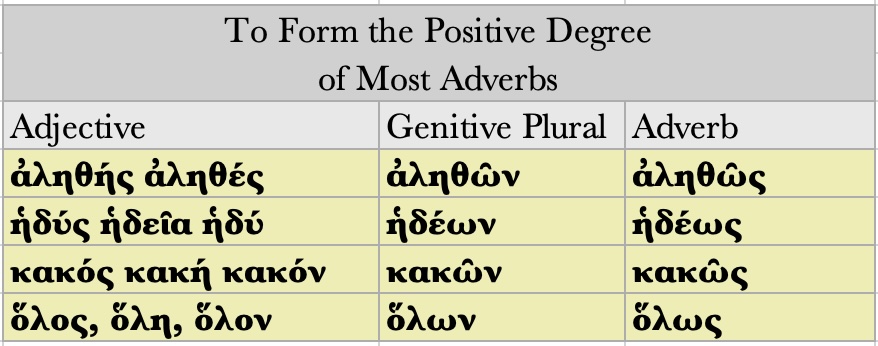36.8 Greek adverbs, like adjectives, also have DEGREES:
- The POSITIVE degree: wisely
- The COMPARATIVE degree: more wisely
- The SUPERLATIVE degree: most wisely
Recall that to form the positive degree of most adverbs, start with the GENITIVE PLURAL of the MASCULINE ADJECTIVE and substitute –ς for the final –ν (S 343, G 229). The ACCENT remains as it was on the genitive plural.
36.10 In Greek, adverbs do not have unique endings in the comparative and superlative degrees. To form a COMPARATIVE ADVERB, Greek uses the NEUTER ACCUSATIVE SINGULAR form of the COMPARATIVE ADJECTIVE:
- σοφώτερον more wisely
- βέλτιον better
To form a SUPERLATIVE ADVERB, Greek uses the NEUTER ACCUSATIVE PLURAL form of the SUPERLATIVE ADJECTIVE:
- σοφώτατα most wisely
- τάχιστα most swiftly, quickest
Charts JPG


